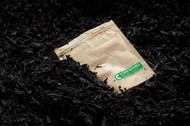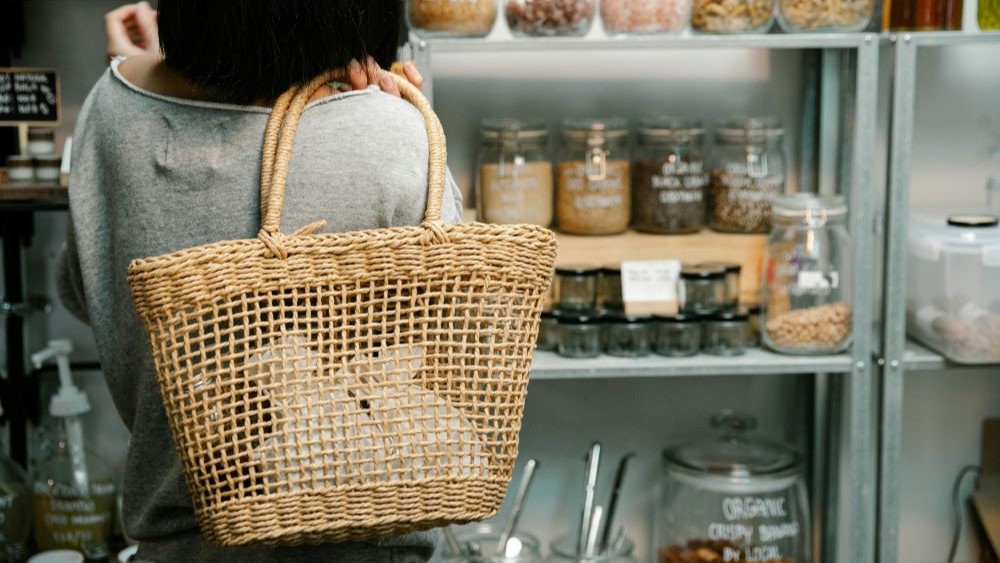
Circular packaging is a sustainable approach designed to minimize waste by keeping packaging materials in use for as long as possible through practices like reuse, recycling, and regeneration. This method creates a closed-loop system, ensuring that packaging materials either return to the system as reusable resources or decompose safely, without harming the environment.
Compostable packaging plays a crucial role in the circular economy! It transforms what was once waste into nutrient-rich soil, actively regenerating natural ecosystems. For businesses ready to strengthen their sustainability initiatives, circular packaging delivers measurable benefits: alignment with Extended Producer Responsibility (EPR) requirements, meaningful environmental impact, and a clear path to achieve sustainability goals.
What is Circular Packaging? Understanding Circularity in Business
Circular packaging moves away from the traditional "take-make-dispose" model. Instead, it emphasizes reuse, recycling, and regeneration, keeping packaging materials in use for as long as possible. This approach contrasts sharply with linear packaging, where materials are used once and discarded, often contributing to excessive waste and environmental harm.
For instance, businesses might use packaging made from renewable or reusable materials that can be recycled or composted after use. This method helps reduce reliance on virgin resources such as fossil fuels and trees while decreasing overall waste. Circularity in packaging isn't just about the end-of-life phase. It redefines the entire product lifecycle, from material sourcing to design and eventual decomposition, and ensures every stage minimizes environmental impact. Circular packaging contributes directly to larger environmental goals, such as lowering carbon footprints and conserving natural resources, all within a closed-loop system.
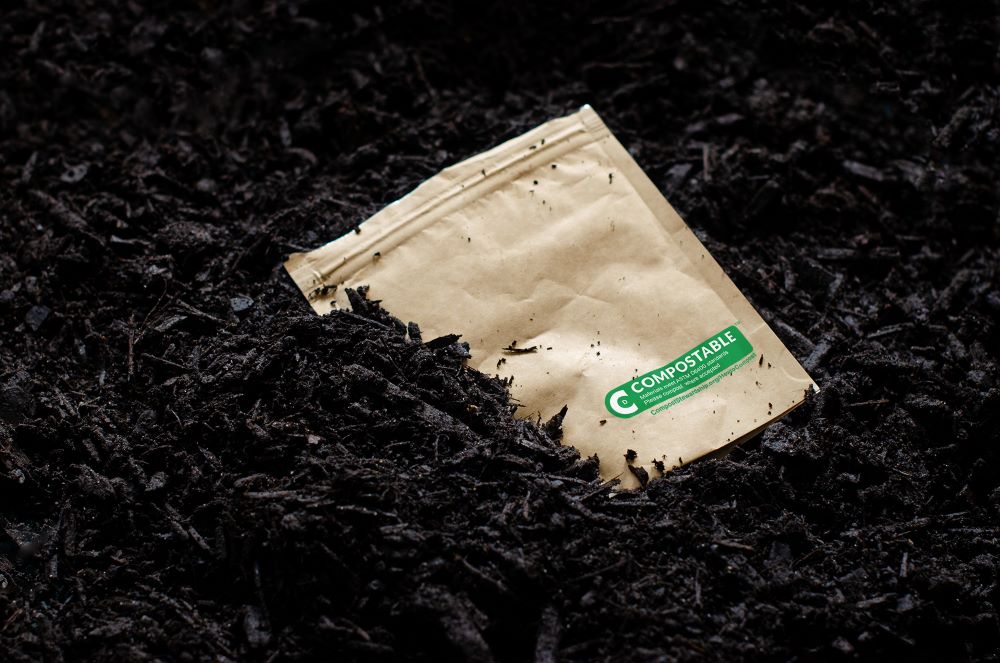
Why Compostable Packaging Is Key to Circular Economy Success
Compostable packaging is a vital part of the circular economy, offering a transformative alternative to traditional single-use plastics and even recyclable materials. Recyclable packaging stays within a limited industrial loop, it is processed and reused until its quality eventually degrades. Compostable packaging goes beyond reuse, it completes a full, natural cycle by breaking down into nutrient-rich compost. As compost, it reintegrates with the environment and directly supports ecosystems, agriculture, and biodiversity. This process not only extends the lifecycle of materials but also actively regenerates the planet.
Compostable packaging makes a more profound impact by closing the loop in a way that directly benefits the environment! By reducing the need for synthetic fertilizers and improving soil quality, compostable packaging doesn’t just dispose of waste sustainably, it revitalizes ecosystems. This makes it a key element of circularity, offering businesses a regenerative, eco-friendly packaging option.
For businesses aiming to reduce their environmental footprint, compostable packaging provides a tangible long-term solution. Its ability to support healthier ecosystems and minimize waste aligns directly with sustainability goals, making it an impactful choice for companies committed to sustainability.
Circular Packaging and EPR: Meeting Modern Sustainability Goals
Circular packaging plays a critical role in helping businesses meet sustainability targets, especially when aligned with Extended Producer Responsibility policies. EPR holds manufacturers accountable for the full life cycle of their products, from design to disposal, encouraging waste reduction and eco-friendly design.
Compostable packaging breaks down naturally and enriches the soil, reducing the burden on landfills. Meanwhile, recyclable materials ensure resources stay in circulation, reducing the need for new materials. These efforts align directly with sustainability goals like reducing carbon footprints and achieving Net Zero. Complying with EPR policies helps businesses reduce packaging waste and take responsibility for the full life cycle of their packaging materials.
By adopting circular packaging and adhering to EPR guidelines, businesses can not only reduce their environmental impact but also gain consumer trust. More and more consumers favor businesses that demonstrate environmental responsibility, making circular packaging a strategic advantage for brands.
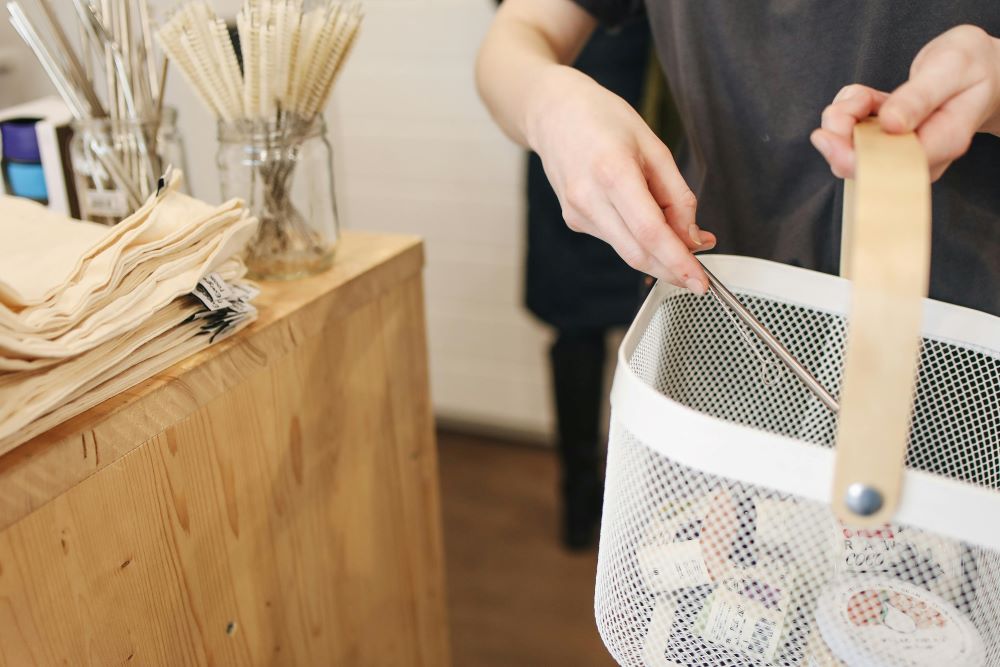
Practical Steps for Businesses to Transition to Circular Packaging Solutions
Transitioning to circular packaging is a practical way for businesses to reduce waste and contribute to environmental sustainability. Here’s how your business can begin this journey:
- Assess Your Current Packaging Use: Start by evaluating your existing packaging materials. Identify opportunities to switch to compostable or reusable alternatives, such as compostable bags, pouches, or labels.
- Choose Compostable and Reusable Materials: Explore compostable options that align with your business's needs. For example, if you currently use plastic packing tape, consider switching to compostable tape that breaks down into healthy soil.
- Collaborate with Sustainable Suppliers: Partnering with suppliers who prioritize circularity, like Elevate Packaging, ensures a consistent supply of compostable packaging solutions that meet your sustainability goals.
- Educate Your Customers: Customer education is key. Include clear instructions on your packaging and website about how to compost or recycle your materials to increase engagement and ensure proper disposal.
- Track and Improve Your Efforts: Continuously monitor the effectiveness of your circular packaging strategies. Gather feedback and stay informed about innovations to refine your sustainability efforts over time.
Designing packaging for circularity requires thoughtful choices in materials, structure, and production. Learn more about sustainable packaging design to make the most informed decisions!
Ready to make the switch to circular packaging? Contact us today for a custom compostable packaging solution that fits your business needs. Request a quote or learn more about how Elevate Packaging can help you achieve your sustainability goals.
Ready to Start Your Sustainability Journey?
Overcoming the Challenges of Adopting Circular Packaging
Adopting circular packaging is a critical step toward sustainability, but it can come with challenges. Here are some of the common obstacles and how businesses can address them:
- Upfront Costs and Long-Term Savings: Compostable materials may come with higher initial costs compared to conventional plastics. However, over time, these costs are often offset by savings in waste disposal and regulatory compliance, as well as increased customer loyalty.
- Supply Chain Adjustments: Sourcing compostable or recyclable packaging materials may require changes to your supply chain. Partnering with suppliers like Elevate Packaging simplifies this transition, ensuring consistent access to sustainable solutions.
- Educating Consumers and Stakeholders: Many consumers may not be familiar with how to compost or recycle these materials, so clear instructions are crucial. Include labels or online resources that explain proper disposal to encourage consumer participation in your sustainability efforts.
- Infrastructure Gaps: In areas where composting facilities are limited, businesses can advocate for better composting infrastructure or partner with initiatives such as the Compost Stewardship Institute to help bridge this gap.
- Continuous Innovation: Sustainability is an ongoing process. Stay informed about new developments in circular packaging technology and be open to refining your practices as innovations emerge.
For more on the environmental and economic impacts of plastic packaging, read The True Cost of Plastic Packaging.
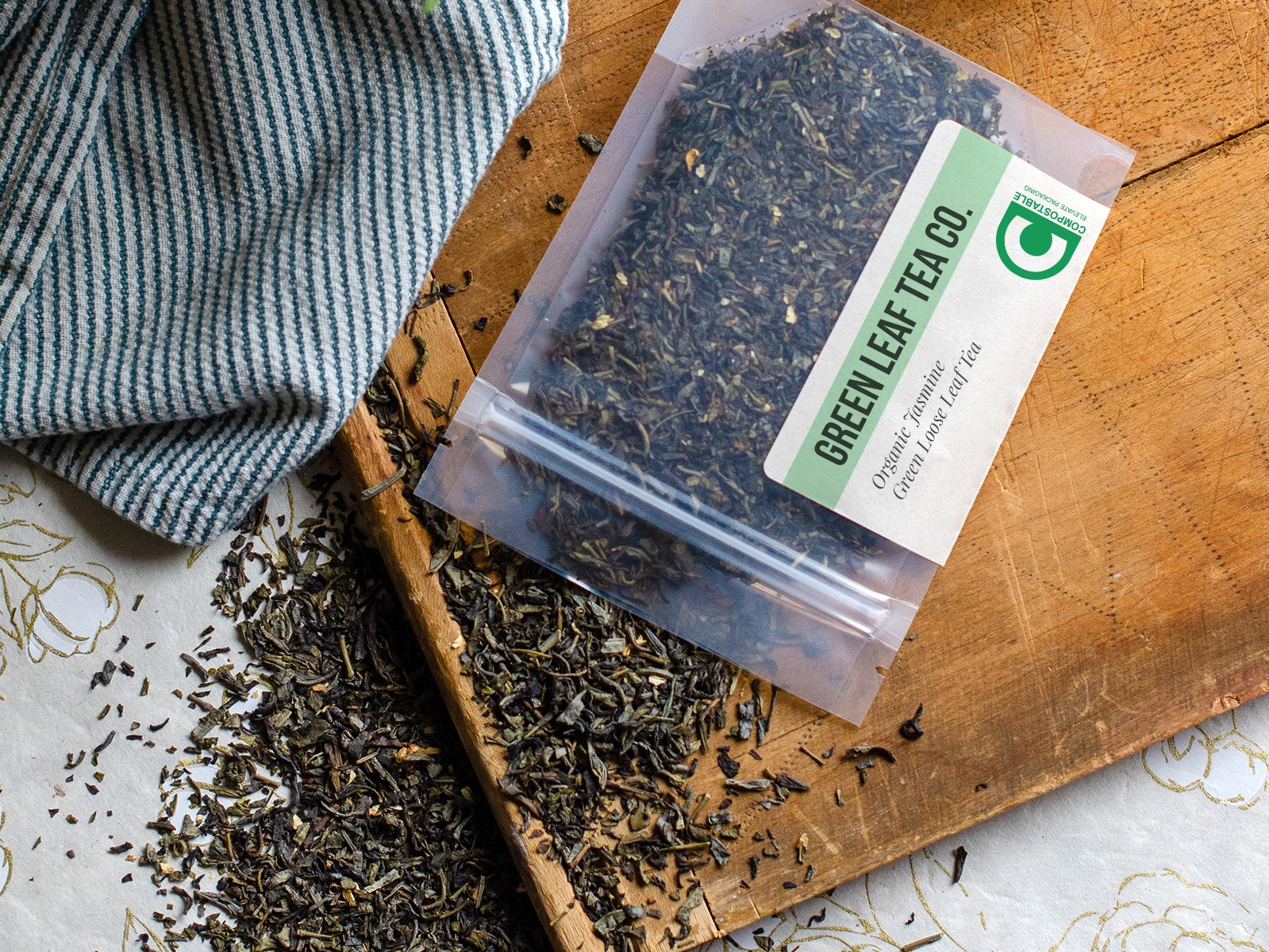
Transitioning to circular packaging is a powerful way for businesses to lead the charge toward a more sustainable future. By embracing compostable and recyclable materials, companies can reduce their environmental impact, meet consumer demand for eco-friendly practices, and comply with regulatory frameworks like EPR. While the journey toward circularity may present challenges, from cost considerations to supply chain adjustments, the long-term benefits far outweigh the initial hurdles.
At Elevate Packaging, we understand that compostable packaging plays a crucial role in this circular economy. Through our extensive work with businesses across industries, we’ve demonstrated how compostable solutions can transform conventional waste streams into environmental assets.
Whether you’re just beginning your sustainability journey or looking to improve your current packaging systems, circular packaging offers a pathway to creating a positive environmental impact while growing your brand. The future of packaging is circular, and by taking action now, your business can be part of the solution—driving both business success and environmental responsibility forward.
Take the next step in your sustainability journey with custom compostable packaging from Elevate Packaging. Contact us for more information or request a quote today, and let us help you turn your sustainability goals into reality.
Ready to Start Your Sustainability Journey?

